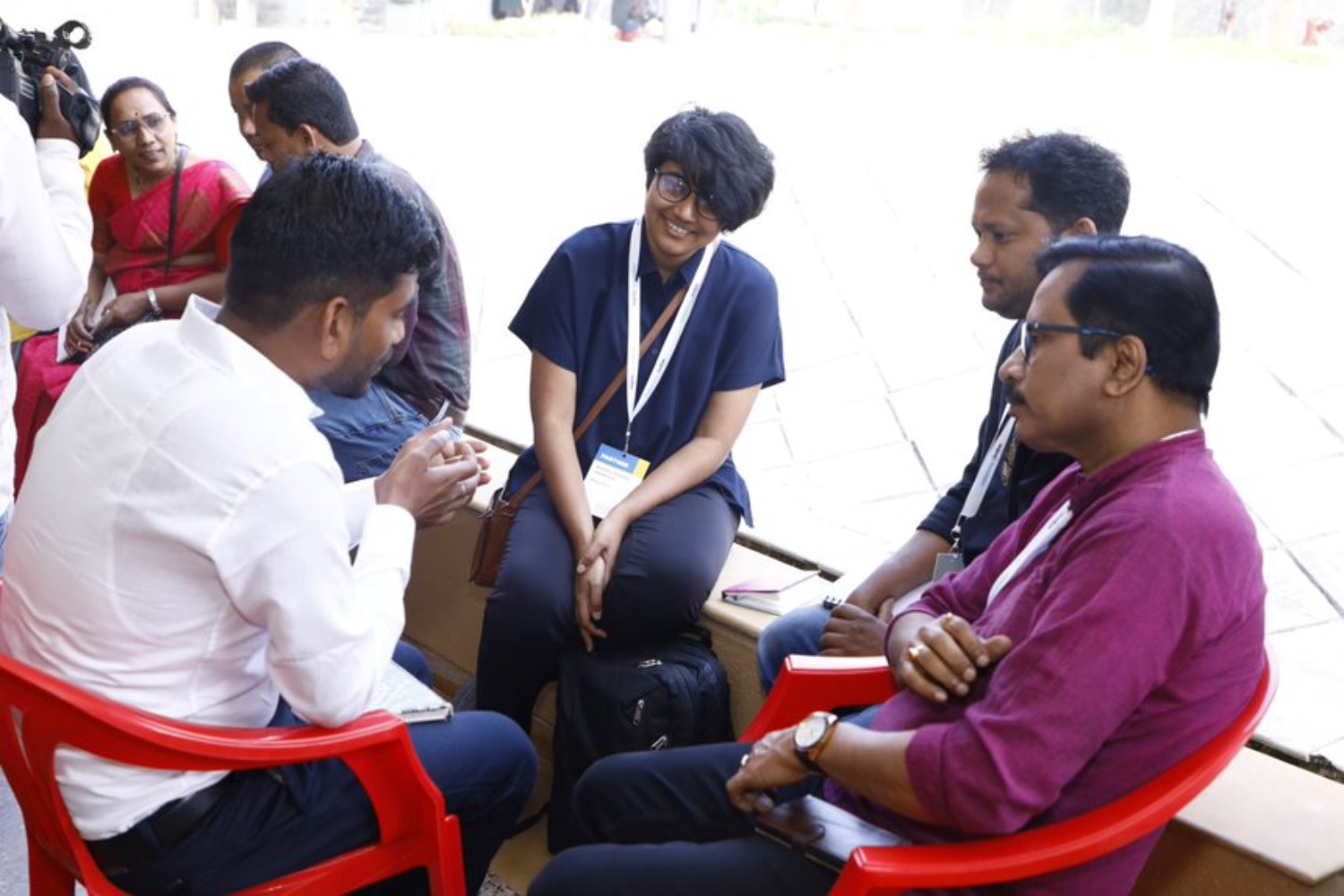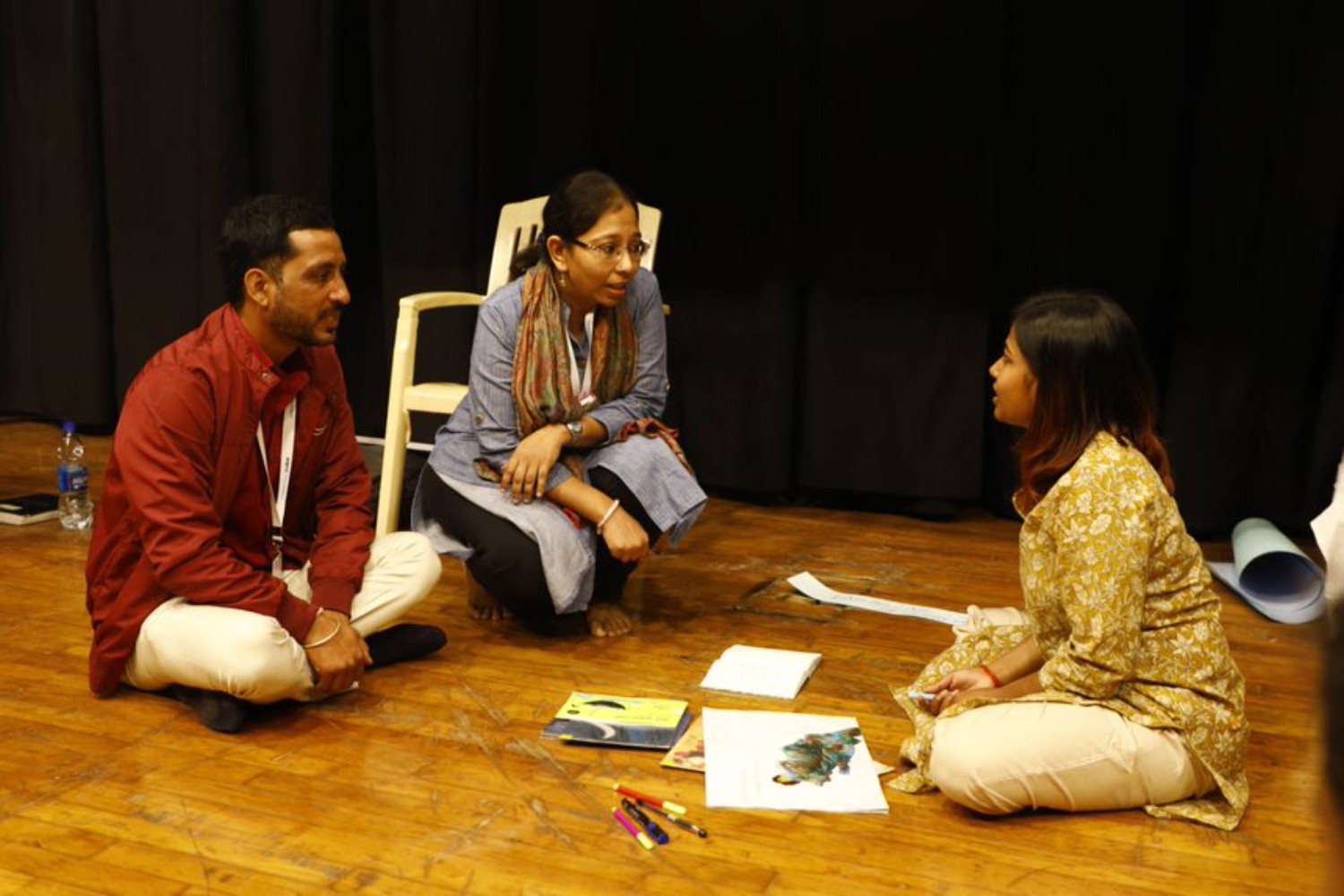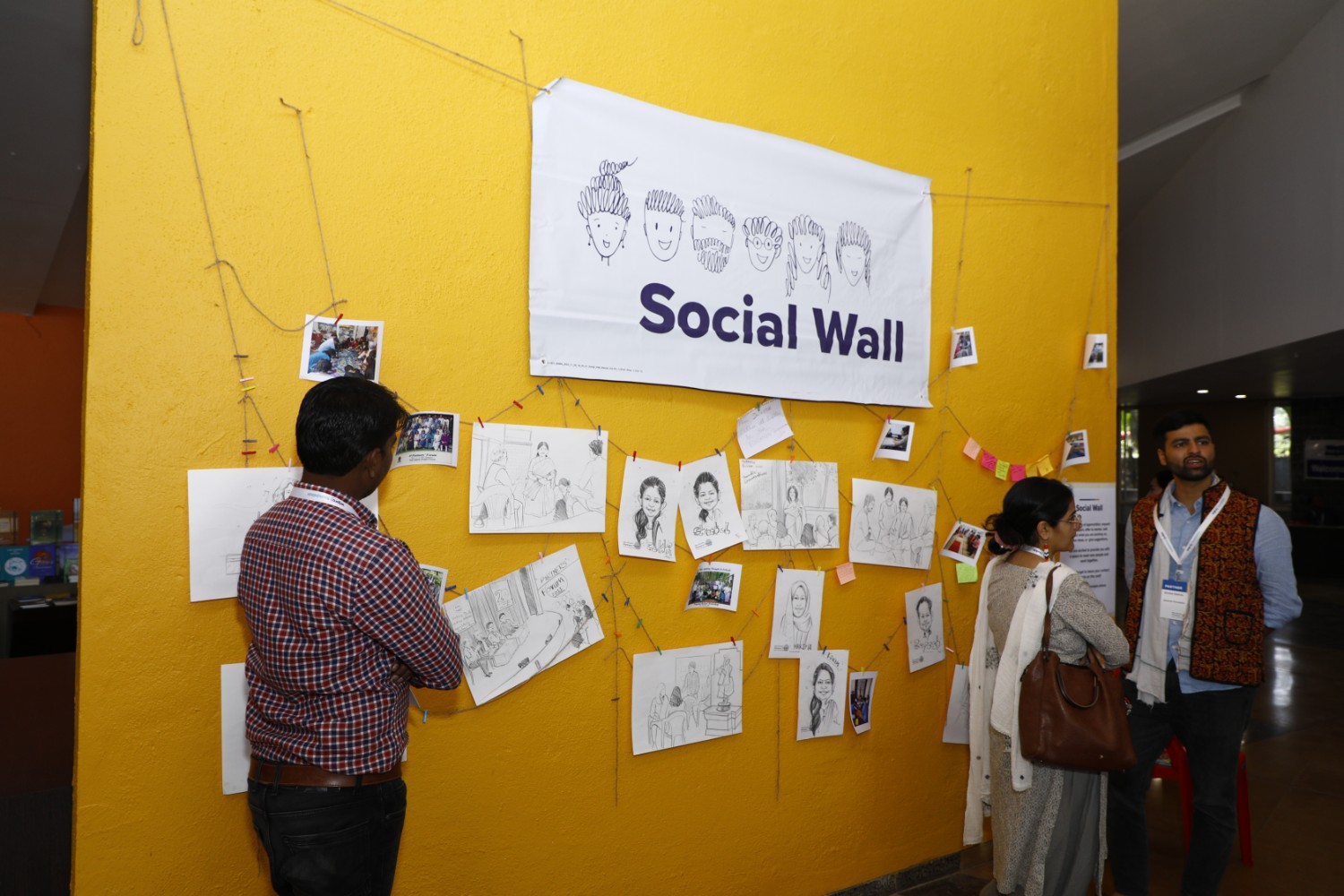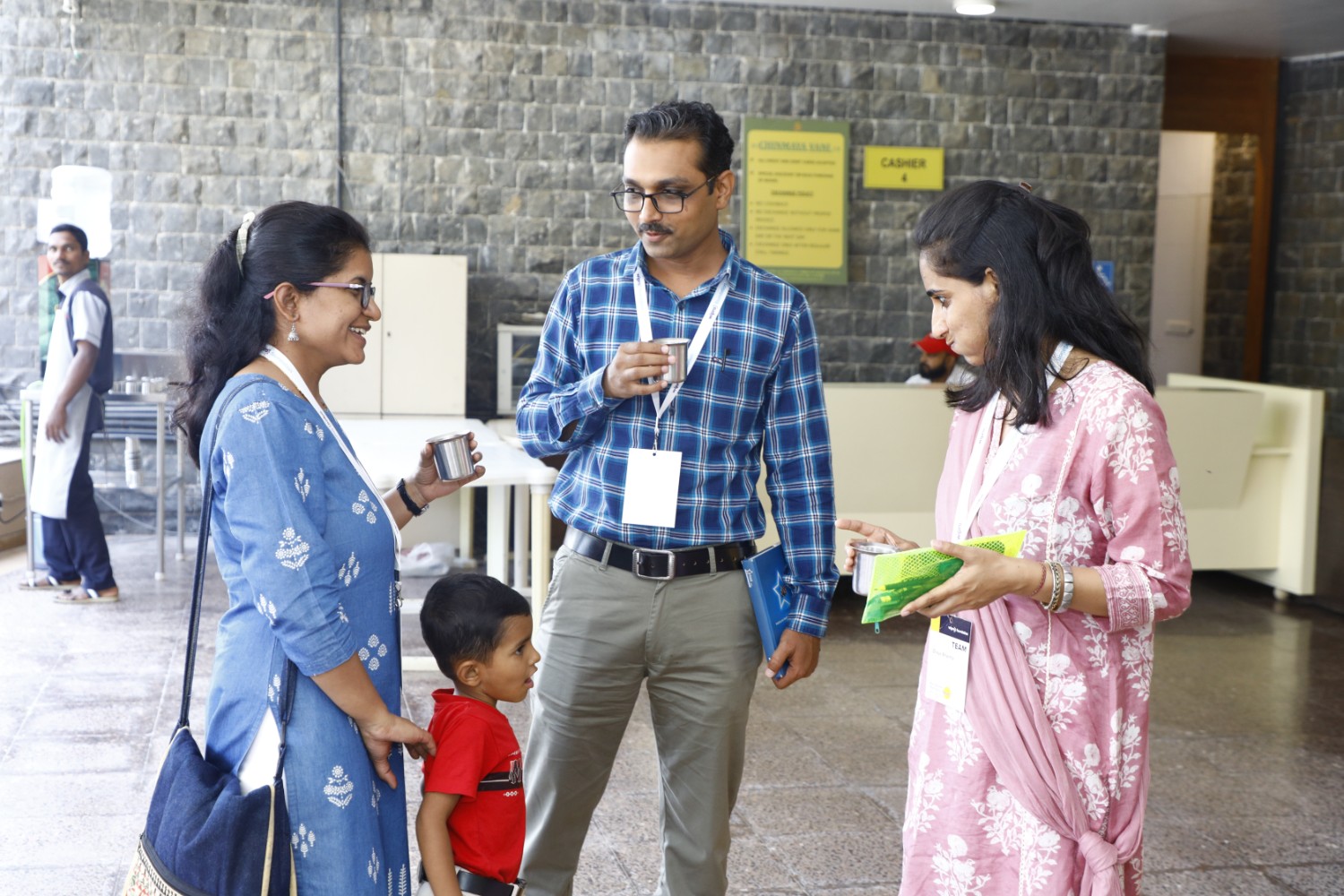Learnings from the regions: reflections and sharing in the zonal meetings
In this piece, insights and learnings from discussions that took place in various thematic groups during the regional meetings of Wipro Foundation’s partners as part of this year’s Partners’ Forum are shared.

Different regions of India have different socio-political landscapes and cultural geographies. Non-profits working in the same region often face similar challenges and have learnings which when shared may prove useful as aids in reflections and agenda setting. In the 20th Partner’s Forum, organizations who are members of the Wipro Education Partners Network met in their respective zones as a relationship building exercise. The zone-wise processes are shared below.
East Zone regional meet
The session began with an ice breaking session by team members from Wipro Foundation. Participants in the zonal group were subdivided into sub-groups with the following foci: Fundraising; Strong local teams; Working with governmental functionaries; Teacher capacity building, and; Technology.
These sub-groups then met in breakout subgroup sessions. Here the interactions and deliberations were guided by some guiding questions. The discussions from each group were captured in posters which were then displayed. After this, the larger group met as a whole to share their experiences.
North Zone Regional Meet In the regional meet for the North Zone, nine states were represented. These included Rajasthan, Himachal Pradesh, Uttarakhand, Uttar Pradesh, Punjab, NCR, Haryana, J&K and Ladakh. A total of 27 organizations participated in the meet.
The participants had two choices for the couple of sessions that were planned for the meet. These included a discussion on what CSOs need to reflect and work within to proactively address the top five challenges for the next decade or to spend time on getting to know each other better to kickstart partnerships and collaborations. The group chose the second option.
Initially the group organized themselves in two concentric circles. Music was played. Then they moved in opposite directions till the music stopped. Each participant spent two minutes getting to know the person in front of them. The group did six iterations of this process with much joy, confusion and dancing to the music.
Each organizational pair spent 10 minutes reflecting on two organizations they are looking forward to explore conversations with or to learn from. Each organization went around sharing who they would like to continue conversations with and why. The partners went back with a sense of excitement, curiosity and new friendships and partnerships to keep the conversations going after the Forum.
Statements for the ice-breaker exercise for the East Zone
One person from each organization came forward and the group formed a circle. Statements were made. Then people who agreed stepped forward. Those who disagreed moved back.
Participants paused for at least 30 seconds after each statement. This was to give people a chance to see each other’s responses and make notes for future cooperation. Statements used in the exercise are shared below.
- My organization is led by a woman/ has a woman in the leadership team
- My organization has been working in education for >10 years
- My organization has been working in education for <4 years
- My organization works with children from tribal areas
- My organization works with migrant children
- My organization works with children working on the street
- My organization works and promotes multilingual education
- My organization works in preparing out-of-school children to mainstream to government schools
- My organization works in a focused way on library education
- My organization has been working with the government school system for the last 3+ years
- My organization works with CwD
Guiding questions for facilitating discussions in the sub-groups in the East Zone meeting
| Fundraising | Strong local team | Working with government functionaries | Teacher capacity building | Technology |
| What are some tools that people use for fundraising? | How to select people from the community with the required capabilities and dispositions? | What are the different top-down strategies and bottom-up strategies that are useful? | How do we show the value of our work to teachers? (get their buy-in from a position of reluctance/ reservations/ suspicion) | How do I identify which aspect of my work to introduce technology into? |
| Which processes are used to identify potential funders? Do we know the priority areas for different funders? | We have community people for roles that are about working on the ground. How can I enable them to take more organizational responsibilities? | How do we respond to scale-up related questions about our work when we are not in a position to scale-up? How do we emphasize the importance of our work in such contexts? | How do we manage teacher expectations? (e.g., teachers are looking for people to substitute them; our role is different) | My team is uncomfortable with the use of technology. What can I do to make them more comfortable? |
| What are the main challenges we face with respect to fundraising? | What processes do we need to have in place for CB of our team? | What are some of the tactical ways in which we can maintain presence in larger forums yet not get sucked into large-scale expectations? | What are the pre-requisites that we need to have as an organization before we work on teacher CB? | Are there existing technological tools I can use or do I need to look for custom solutions? |
| What are the support systems from partners like WF that we think could help? | How do I do performance management of my team members? | How do we identify who from the government we need to work with? | How do we ensure that our work with teachers sustain beyond our presence in schools? | We have connectivity issues in our region and get good internet only in certain areas (home/ office). Can we use tech tools for our operations in this case? |

South Zone regional meet
The south zone regional meet had a total of 54 participants from 29 organizations scattered across five states in south India – Andhra Pradesh, Karnataka, Kerala, Tamil Nadu and Telangana. The aim of the regional meet was for all the partners to use the opportunity to get to know each other better, as individuals and representatives of their organizations. Another aim was to allow for opportunities to collaborate between the partners. It had been three years since the last regional meet in 2019. The number of partners has increased in the meantime with several new organizations joining the group.
The session began with an icebreaker activity. In this exercise all the participants stood in two parallel lines facing each other. With their eyes closed, they took steps forward or behind, based on responses to a series of questions. When they opened their eyes, the scatter plot that resulted from the parallel lines they had started with revealed the fact that they were individuals with different life and work experiences and have travelled from different locations and distances.
This was a good point to move to the next phase of the session where they were divided into eleven sub-groups, with five individuals in each. Each one was split across two circles (an inner and the other an outer one), and each group spent around six minutes with introductions to each other. Then they moved within each circle to the next group in a predefined manner.
This allowed for all the participants to interact with each other individually within a fixed time period. Finally, they moved around in the room in an exercise to stretch out legs. Then small groups of five each were formed through random association. Participants then spent time discussing possible collaborations between themselves.
We closed the session with a short reflection circle where we opened up some requests for further support across the region. We also invited feedback for the Forum. The entire regional meet session took over two hours in total. It appeared that many partners were not aware of others in the network, or their work. They were already beginning to explore possibilities of collaboration between themselves at the end of the process.

West Zone regional meet
The group had a diverse set of participating organizations. This diversity was not just in terms of their work, geography, context and approaches. It was also there in terms of their organization size, stage, journey and challenges. Most of the partners in the meet were attending the Forum and meeting each other for the first time. Therefore, the primary objective for the session was kept simple. The goal was to create a space where participants can experience, acknowledge, appreciate and leverage the diversity of the group.
It was interesting to see how a few from the group, especially those who have attended a few Partner’s Forums, took charge of the space while waiting for regional team members from Wipro Foundation. These participants who took the lead initially activated the space through a movement song ‘Geet Ga Rahe Hain Hum Ragini Ko Dhundhte Hue.’
After a warm welcome, the group was invited for a ‘speed meeting’ activity to quickly get a glimpse of the participants, their organizations, work, strengths, challenges, and dreams for their respective organizations. This brought in a few laughs with mix-ups and confusions. Certain questions like ‘What is your dream for the organization?’ brought in some silence for everyone to reflect upon. Most other questions generated immediate responses, and the energy was vibrant and quick-paced.
With an assumption that the group would have warmed up through the speed meeting ice-breaker, the group moved on to the main exercise of the session – ‘Step in the Circle.’ In the exercise, the participants were requested to form a big circle, listen to the statements announced by the facilitators and step inside the circle if the statement was true/relevant for them/their organization. They had to stay there for a few seconds before returning to their original place.
The facilitators read a series of statements. After each statement, the group was asked to observe the inner and outer circles. The statements were related to organization’s location, domain of work, size model/ approach, stakeholders, challenges, leadership, culture, needs, priorities, and so on. The design was deliberately set to allow the participants to ponder and observe in silence with no conversations. At the end of the exercise, when members were asked to share their thoughts, observations, reflections – many interesting points came up.
To quote a few – “Despite such diversity, we can see how similar our challenges are”, “We are not alone in this,” “There are organizations who are doing better, whereas we are struggling, we can learn from them,” “It was comforting to see some large and well-known organizations also struggling with common challenges which we assume only we – small-scale and new organizations – deal with,” “Despite most organizations focusing on staff well-being, almost everyone experiences burnout, stress, anxiety, fatigue and a feeling of helplessness at different points in their work,” “There is so much diversity in the group to learn from.”
Some of the participants had to leave before the end of the session as they had their trains and flights to catch. However, the rest of the group moved to the next activity. For this, they were requested to sit together with their organization partners and reflect on their experience of the last two and half days.
Participants were provided with a few guiding statements to initiate the reflection. These related to processes like key takeaways, questions for further explorations, organizations they wish to visit or seek help from, the support they wish to receive from and/or extend to the education eco-system, and so on.
Though we did not get the time to listen to some of their reflections, it was evident that the partners were putting in a lot of thought as they engaged in responding to this exercise. A few partners shared at a later stage that they were returning with a number of ideas, questions and reflections.
The session was concluded with a gratitude activity by Rohit Kumar from ApniShala. In conducting this, he used guided visualization to take everyone through the entire journey from the first email about Partners’ Forum to the entire two and half days.
The participants were encouraged to think of people, institutions and things which made this journey possible and meaningful. They were then requested to express their gratitude towards them by writing their names on a post-it note and paste it on the gratitude wall.
Everyone dispersed after expressing their emotions and feelings in one word with others in the room. Feelings such as ‘peaceful,’ ‘inspired,’ ‘connected’ and many more were shared. The common favorite was by a young boy (Abhang) of about three years who had accompanied his parents (Kalyani and Aniruddha) calling out ‘mast’ – ‘fun/great’ – as the one word shared.
This session was largely informal, open ended and the two hours felt very seamless and free-flowing. Overall, there was a feeling of solidarity, openness to engage, and lowering of the guards.
In conclusion
As many participants shared, the zonal meetings helped in building bridges, forging relationships and opening up horizons. Many participating organizations became aware of each other’s work for the first time. It is hoped that these interactions will lead to further conversations and associations.




No approved comments yet. Be the first to comment!